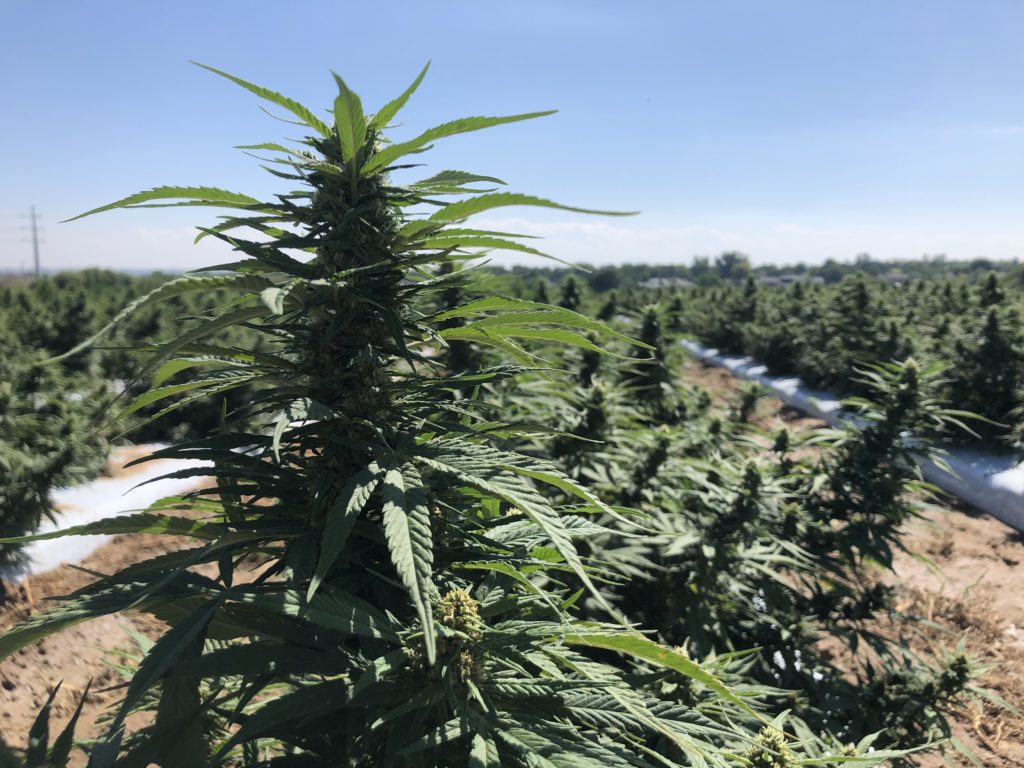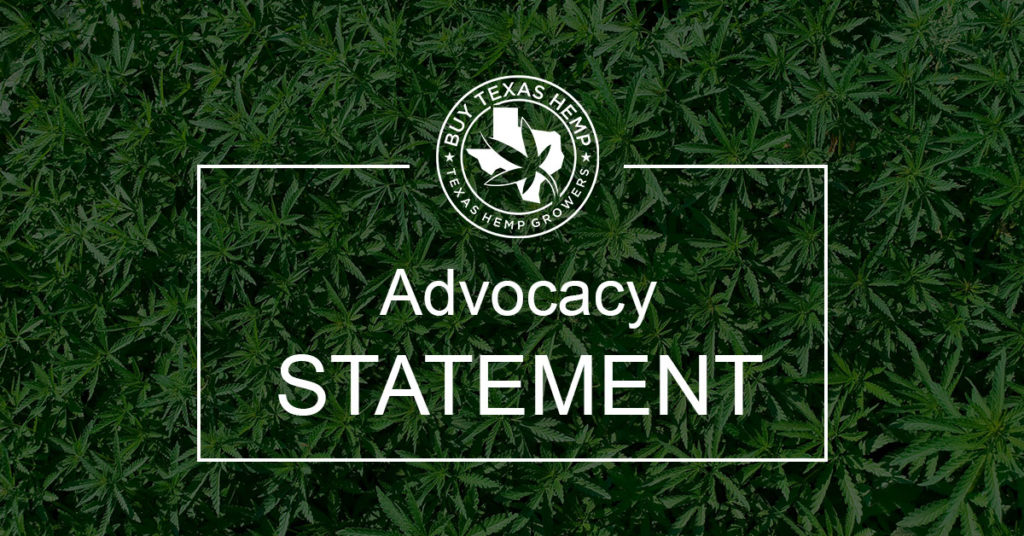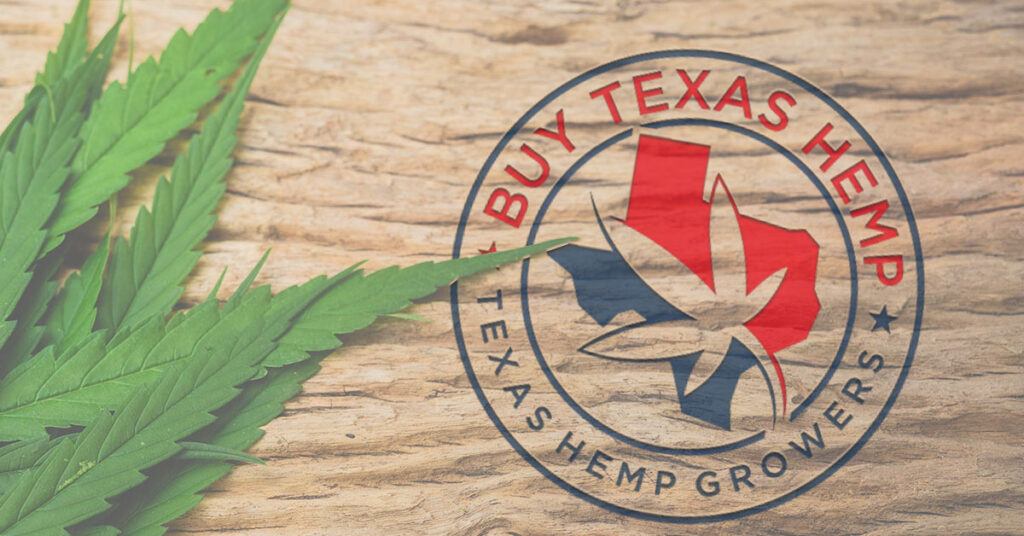Texas Delta-8 FAQ
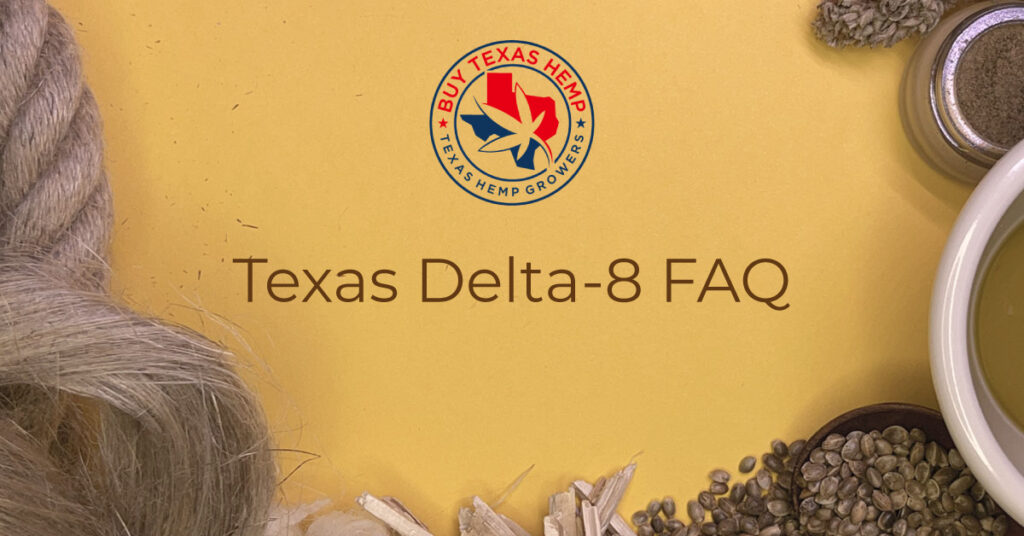
UPDATE: After a lawsuit was filed by a Texas company, a judge has put in place a temporary injunction against the ban. This means you can now possess and sell Delta-8 in Texas. The court case is ongoing, and the effects of the injunction could change. Please check back for new information.
== Original Information ==
This information is subject to be put into effect again, if a judge overturns the temporary injunction mentioned above.
Is Delta-8 legal in Texas?
The answer for this question is directly from Department of State Health Services Hemp Licensee FAQ (emphasis added):
No. Texas Health and Safety Code Chapter 443 (HSC 443), established by House Bill 1325 (86th Legislature), allows Consumable Hemp Products in Texas that do not exceed 0.3% Delta-9 tetrahydrocannabinol (THC). All other forms of THC, including Delta-8 in any concentration and Delta-9 exceeding 0.3%, are considered Schedule I controlled substances.
Is delta-8 legal if my COA shows less than 0.3% delta-9 THC?
No. The only THC that is legal is 0.3% delta-9 THC or less with absolutely no other detectable THCs. For example, full spectrum CBD oil less than 0.3% delta-9 THC is legal. By comparison, a delta-8 vape cartridge with a COA that shows less than 0.3% delta-9 THC is still ILLEGAL.
Is it legal to have delta-8 sprayed flower?
No. Delta-8 in any concentration is illegal. This includes if it’s sprayed, infused, coated or any other format.
What are the consequences if I’m caught with delta-8?
In most cases, the penalty will be an automatic felony. The state considers any amount of THC extract, including delta-8 in any concentration, an automatic felony. So any vape cartridge would qualify. The penalty is up to two years in prison and up to $10,000 in fines. If you are a hemp licensee, you will lose your ability to obtain a license in the state’s hemp program for at least ten years, if convicted of a drug-related felony.
Where in the text of the law is this found?
DSHS considers Delta-8 and similar isomers to be illegal under the definition of “tetrahydrocannabinol” and “marihuana extract” found in Texas’ Controlled Substances List.
You can find the Controlled Substances List here.
DSHS finds its authority to modify the controlled substances list from Health & Safety Code 481.033 – Controlled Substances Act.
Just because the definition of “tetrahydrocannabinols” doesn’t expressly say “delta-8” doesn’t mean it’s not covered. The definition is so broad that it includes ALL THC that isn’t 0.3% delta-9 THC or less.
Where can I hear this in DSHS own words?
Here is a short video of testimony from a Department of State Health Services resource witness during a state senate committee hearing in May 2021. You will clearly hear this representative explain that DSHS and DPS already classify Delta-8 as a Schedule 1 Controlled Substance.
So this applies to THCO, THCP, THCV, HHC, and other designer cannabinoids?
Yes. DSHS’ exact words are: “…all other forms of THC, including Delta-8…”
What about delta-8 gummies and edibles?
Again, delta-8 “in any concentration” is considered possession of a Schedule 1 Controlled Substance by the State. And edibles are classified as concentrate in Texas, so it will be an automatic felony if caught with possession.
I thought a delta-8 ban was defeated during the state session! How is this possible?
We understand this frustration. And it’s valid, because we thought this was a settled issue. THG helped defeat the ban in the state. However, the entire industry was blind-sided when the representative from DSHS revealed that Delta-8 was already considered a Schedule 1 Controlled Substance.
The state legislature technically gave DSHS and law enforcement (DPS) authority to regulate the state’s List of Controlled Substances, which is where these definitions are found (“tetrahydrocannabinols” and “marihuana extract”). Think of it this way: the state only meets every two years. Legislators understand that things can quickly change in between sessions. For example, new designer drugs can rapidly hit the market and become a problem. When the State Legislature passed Chapter 481, they effectively said they trust the state’s health authority (DSHS) and its law enforcement authority (DPS) to maintain and enforce the state’s Controlled Substances List.
So when did the change happen? When did Delta-8 become illegal?
The technical answer is January 20, 2021, when the final notice was posted in the Texas Register.
In August 2020, the Drug Enforcement Administration updated the federal Controlled Substances List to amend its definitions for “tetrahydrocannabinols” and “marihuana extract.” The DEA adopted very broad definitions that do, theoretically, offer a substantial argument that Delta-8 is legal (a “gray area, if you will).
But when the federal controlled substances list is updated, it’s up to the appropriate state authorities to either adopt these new definitions into the Texas’ Controlled Substances List or reject them.
In Texas, the authority to adopt or reject the DEA’s definitions is delegated, through Health and Safety Code 481.033, to DSHS Commissioner John Hellerstedt. Commissioner Hellerstedt is not an elected official, but instead effectively appointed by the governor.
After receiving these definitions from the DEA, Commissioner Hellerstedt used his authority under Chapter 481 to reject them.
In his rejection letter, which was published in the Texas Register on Sep. 18, 2020, Hellerstedt stated his belief that the DEA’s broad definitions “allow for the presence or addition of tetrahydrocannabinols aside from the presence of delta-9-tetrahydrocannabinol.” He further said “Multiple tetrahydrocannabinol isomers and variants may have pharmacological or psychoactive properties.”
Chapter 481 requires DSHS to give industry stakeholders a chance to be heard when it comes to this rejection. After Hellerstedt published the rejection letter, a public hearing was scheduled for Oct. 6, 2020 (via Zoom). We confirmed, with the use of the Wayback Machine, that DSHS did publish a meeting notice on on its website.
We also obtained the zoom video of the meeting. However, nobody was in attendance, so nobody spoke for or against the proposal. No written comments were received by the cutoff date, either.
We’ll be the first to say that we had no idea this happened. The public hearing notice was posted on an obscure page of DSHS website, and was not posted anywhere in the vicinity of the hemp license information. So understandably, nobody knew about it.
Because nobody spoke at the Oct. 6, 2020 meeting, and no written comments were received in opposition, the rejection was adopted. A final notification was published in the Texas Register on January 20, 2021, making the change official.
But I thought state’s couldn’t pass more strict rules than the federal government when it comes to hemp regulations?
We’ve heard this argument many times, and it is misguided. The Agriculture Improvement Act of 2018 (the Farm Bill), specifically says that states may pass more stringent laws. Here’s the text:
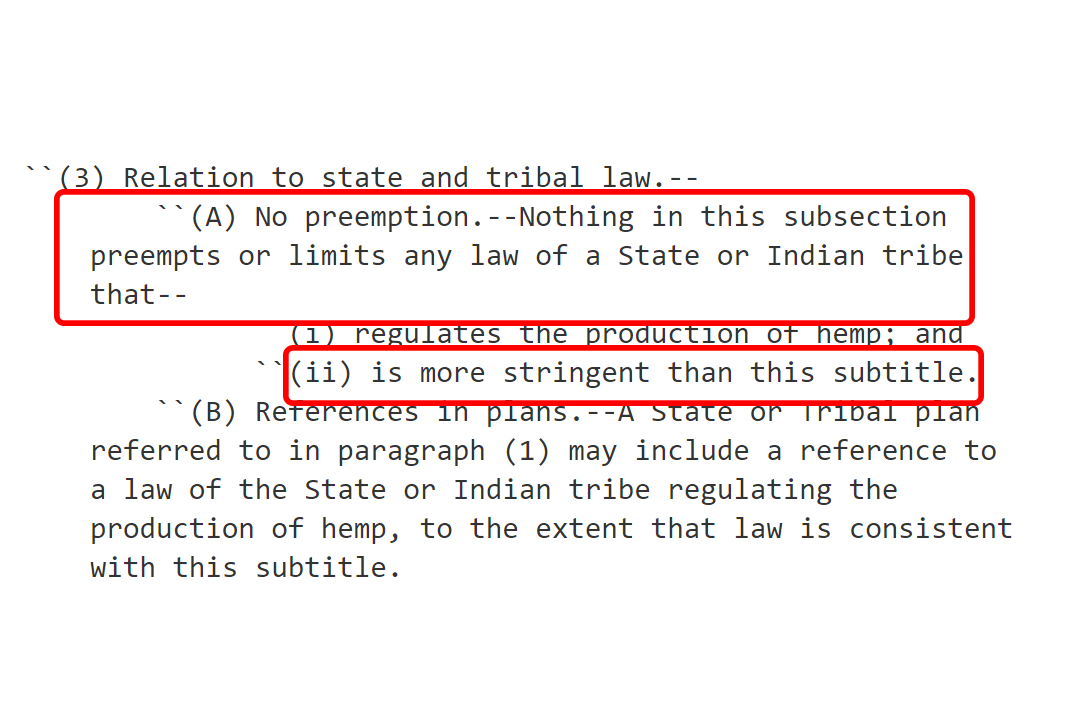
But my friend, who is a police officer (or other authority figure), says it’s okay.
Not every law enforcement officer thinks the same. There have been at least six arrests since July 2021 for possession of delta-8 products. In all cases, the defendants face felony possession charges. You can read about one of those arrests in Bryan, TX, that happened on Oct. 2 here.
What should I do with my current stock?
We cannot advise you what to do with any stock you have currently. We can only advise you that the state considers possession and sale to be a criminal offense now.
I’ve removed my products, but the CBD shop down the street hasn’t. What gives?
You are not their keepers. You shouldn’t worry yourself about other licensees. There are some licensees that are in total denial. They are putting their customers at risk of felony possession charges. In some cases, prominent companies are being given bad advice by attorneys/associations in an effort to save their business. Be responsible and do not emulate another licensee, just because they haven’t been targeted by law enforcement. This isn’t a gray area. It’s black and white.
My attorney says you’re wrong and that we can use XYZ argument. Explain!
Your attorney needs to be honest with you and explain that any theory they are telling you will only be tested in court in front of a judge and at you or your customer’s expense.
I’ve heard DSHS doesn’t enforce its rules anyway….
Don’t be fooled. DSHS doesn’t “enforce” the Controlled Substances List. Enforcement is the responsibility of DPS, sheriffs and police. DSHS even tells us this in their statement: “Sale and possession of these products currently constitutes a criminal offense in Texas. Complaints should be referred to local law enforcement agencies or, if those agencies do not wish to pursue, to DPS. DSHS has no regulatory authority over hemp products other than those that meet the definition of “Consumable Hemp Products” in HSC 443.001(1).”
When does this take effect? Is there a grace period?
It took effect on January 20, 2021, when DSHS posted its final notice in the Texas Register. There is no grace period. These products are illegal now.
What should I tell my customers?
You should tell the truth. It’s not right to put profit over the possible arrest of a customer. We have created a one-sheet Delta-8 Customer Notice that you can print out and use in your store to explain the situation.
Do we have any options to fight back?
To our knowledge, nobody has filed a lawsuit yet. Our opinion is that any attempt to fight this with a lawsuit will be expensive and is not guaranteed to succeed. Frankly, we don’t think this is a winnable fight. Until a judge hears a lawsuit and issues an injunction against the rule, these psychoactive cannabinoids are illegal.
Texas Hemp Growers must be profiting off this somehow…
In no way is our association profiting off telling people the truth about the law. We were down in the state fighting FOR delta-8. Texas Hemp Growers continues to support full plant access. However, we do not sell delta-8 products. We are not paid by any cannabis companies, attorneys or state agencies to make these statements.
I’m upset, who should I contact?
You could send an e-mail to DSHS Commissioner John Hellerstedt sharing your disapproval of his unilateral decision, which did not receive any industry feedback. His e-mail is john.hellerstedt@dshs.texas.gov. Understand Commissioner Hellerstedt is effectively appointed by the governor. So if you want to take it up with an elected official, you’ll have to take it up with the governor.



